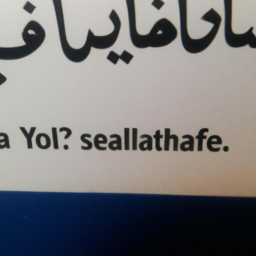The concept of reform has been central to Islamic teachings since the beginning of the faith. The idea of continuously improving oneself and society is not only important in shaping individual characters but also in creating a just and equitable society. In fact, one of the core tenets of Islam is to strive for justice, and this requires individuals and institutions to continuously reform themselves.
One area where reform is desperately needed in today’s world is in the media and journalism industry. In recent years, media outlets have been criticized for several issues, including sensationalism, bias, and the spread of false information. As a result, there has been a growing call for the reform of the media industry to ensure that it operates in a way that is fair, balanced and responsible. This call for reform is known as ‘Islah al-Binshar’ in Arabic.
The concept of Islah al-Binshar can be traced back to the teachings of Islam, which emphasize the importance of truthfulness, honesty, and fairness. These values are essential for a healthy society in which individuals can trust the media to provide them with accurate and unbiased information. However, the media industry has become commercialized over the years, and this has led to the prioritization of profits over public interest. As a result, sensationalism, bias and propaganda have become commonplace in the media, leading to the spread of false information and the erosion of public trust.
To remedy this situation, Islamic scholars and intellectuals have been calling for a reform of the media industry based on the principles of integrity, impartiality, and accountability. This involves taking measures such as establishing media watchdogs, introducing ethical codes of conduct for journalists, and promoting media literacy among the public. Such reforms are essential to ensuring that the media acts as a public service rather than a business aimed at maximizing profits.
Another area where reform is needed is in the political and social systems that govern society. Islamic teachings emphasize the importance of good governance, which requires leaders to act with justice and fairness and to prioritize the needs of the people over their own interests. Unfortunately, many countries around the world suffer from corrupt and authoritarian regimes that violate the rights of citizens and undermine democracy.
To address this issue, Islamic scholars and activists have been advocating for a reform of political and social systems based on the principles of justice, equality, and democracy. This involves both systemic changes, such as reforming electoral processes and establishing independent judiciaries, as well as cultural changes, such as promoting a culture of accountability and transparency.
Lastly, reform is also needed in the economic system to ensure that it operates in a way that is fair and just for all members of society. Islamic teachings call for an economic system that is based on principles of social justice, such as the distribution of wealth and resources in a way that benefits all members of society. However, the global economic system is plagued by inequalities, exploitation, and poverty.
To address this, scholars and activists have been advocating for an economic system based on Islamic principles of justice and fairness. This involves measures such as establishing social safety nets, promoting fair trade practices, and ensuring that the distribution of wealth and resources is equitable.
In conclusion, the concept of Islah al-Binshar is a crucial aspect of Islamic teachings that emphasizes the importance of continuously reforming oneself and society. This concept is particularly relevant in today’s world, where there is a growing need for reform in many areas, including the media, politics, and the economy. By prioritizing the principles of integrity, impartiality, and accountability, we can work towards a better future for all members of society.

